Jamaica is a beautiful country, known for spectacular weather, fresh fruit, and jerk sauce, and jerk chicken. But it is also so much more than this! In this interview, Charla, the food blogger behind That Girl Cooks Healthy, gives us a look into life in Jamaica and Jamaican food.
Charla grew up in the UK and Jamaica. She has a wealth of knowledge of Jamaican and Caribbean food, and it has been so fun learning from her! Keep reading for everything you need to know about Jamaican Food.
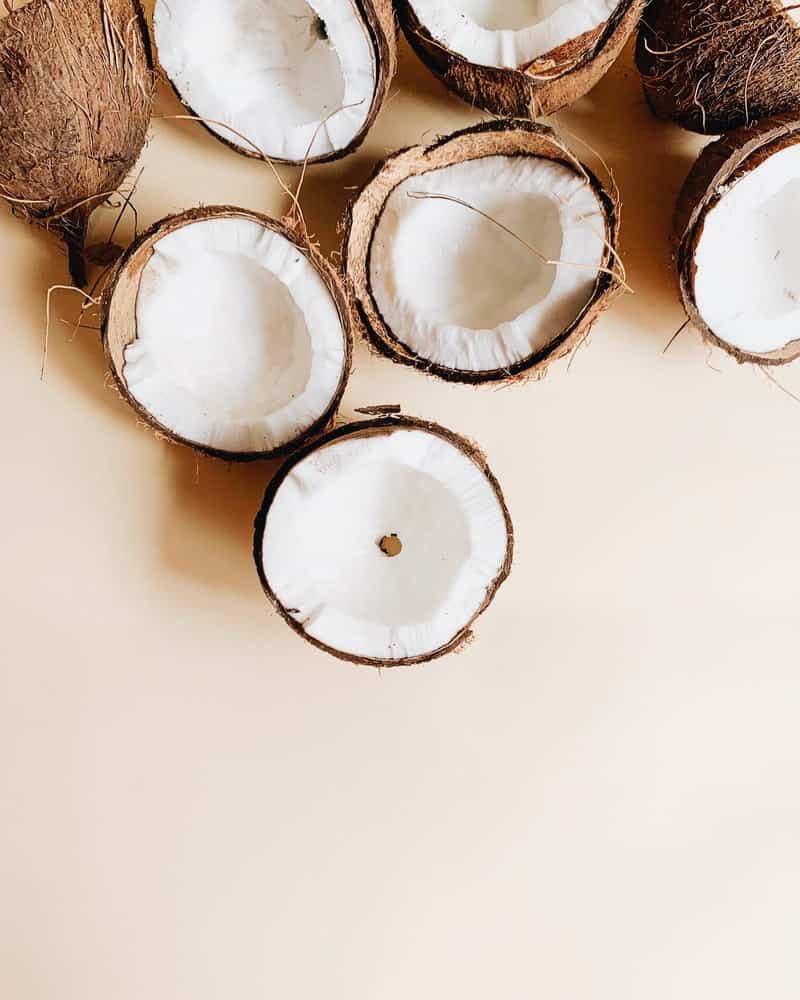
Did you grow up in Jamaica? If so, tell me about life in the country!
I didn’t grow up exclusively in Jamaica. I rotated my time between both Jamaica and the UK. My grandfather’s family is Cuban (I’ve only visited once), but I’m more knowledgeable and connected to Jamaica. I must say that Jamaica has changed from a demographic standpoint as it’s becoming more diverse now with people from various countries migrating there.
However, Jamaica as I know it is incredibly laid back with the most obvious distinction being the climate. It’s sweltering hot every day of the year with fresh fruit and vegetables in abundance.
My family reared their own cattle (cows & goats) and also grew their own crops which is a slight contrast to life in the UK where it is prominently cold. We don’t have complete access to the wide range of tropical fruit and vegetables like we did in Jamaica, so we would often have to purchase them or simply forgo them because of cost.
I spent most of my childhood surrounded by my immediate family. I was a curious child from a young age and would often help my mother and grandmother with chores which included cooking. Alternatively, I would play ball games in the back yard with my older brother.
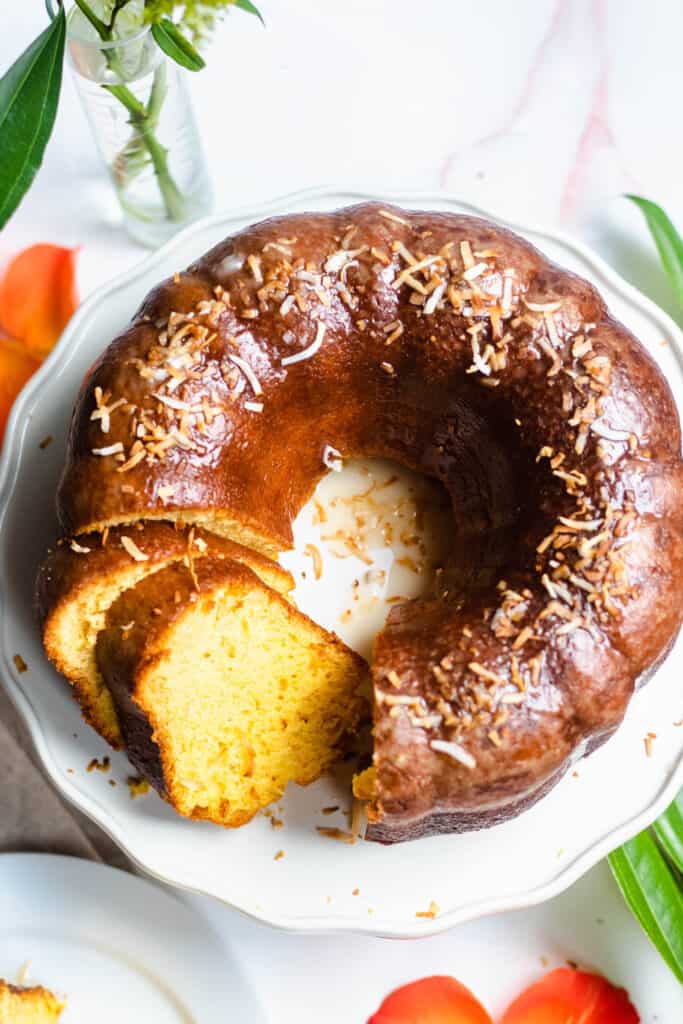
Tell me about Rum culture in the country! I also heard that cranberry is a popular pairing for rum…. Is that accurate?
Yes, sure thing! Jamaicans love their rum and you will find various brands that hail from Jamaica including Appleton, Coruba, A.D Rattray and Wray & Nephew just to name a few.
For Jamaicans rum is used as a celebratory beverage i.e Wedding, parties, and is also included in many recipes too. A few examples that I can give you include Punch (Peanut punch, Carrot juice, ). At Christmas we like to make Sorrel (a drink made from the hibiscus plant) and black cake (a fruit cake).
The popular cranberry pairing I believe comes from fruit punch. As a general rule of thumb a good rum punch is one part sour, two of sweet, three strong, four weak which is where the cranberry is incorporated.
I know there was a time that Jamaica was under Spanish rule… can you see those influences in Jamaican Food at all?
Yes, most definitely! We have a fish that’s known locally as Escovitch fish. I believe the Spanish terminology is escabeche. Escovitch is fried fish that is marinated in a peppery vinegar-based dressing topped with onions, carrots and peppers..
We also have a sweet treat called Gizzada which is a coconut tart that was introduced to Jamaica via the Portugese jews.
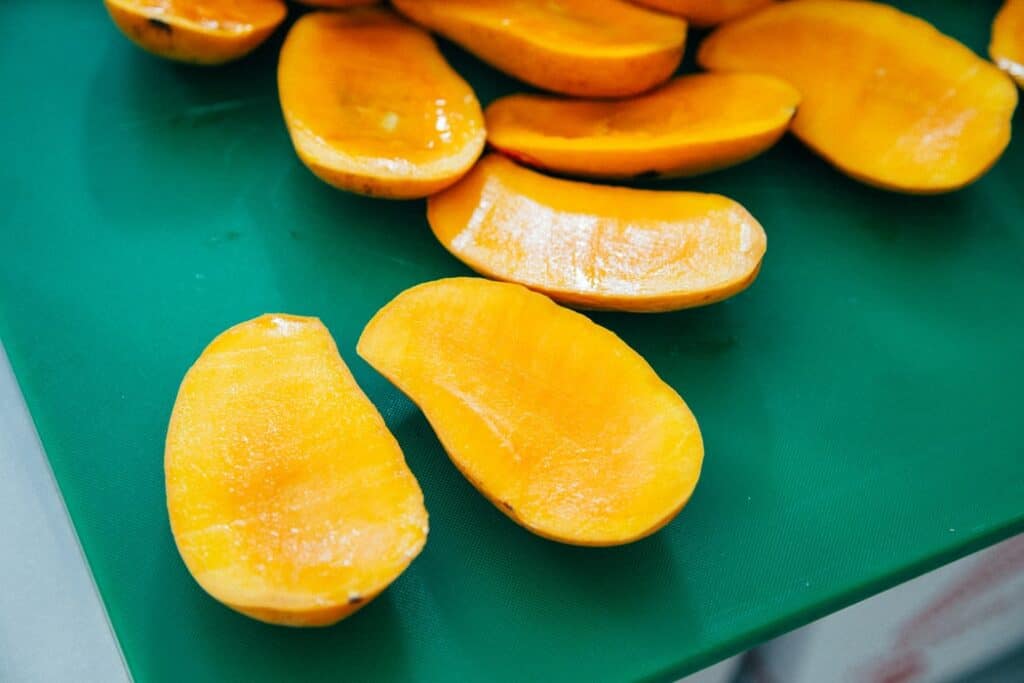
How is the food in Jamaica the same as other foods in the Caribbean?
Jamaica shares a lot of similarities with other Caribbean islands. Most islands tend to grow the same fruit and vegetables but refer to them by a different name.
For example Jamaica and other English speaking islands grow a vegetable known as cassava. In the Dominican Republic, Cuba and Puerto Rico they refer to it as Yuca. The same principle applies to plantain where the Spanish speaking islands call it plantanos.
That’s just a few examples where you can see the similarities. Ultimately, we share the same common ground with crops but call it a different name.
Rice is also a staple for all of the Caribbean islands. You pair rice with most things.
How is Jamaican Food Different from the Rest of the Food in the Caribbean?
The distinction comes from the preparation of these foods. Jamaicans pretty much have a monopoly on patties and jerk. The aforementioned originates from Jamaica.
I would describe the food as relatively fiery due to the use of scotch bonnet peppers. We also like to use browning sauce to yield that rich darkness to sauce and stews. Also fresh thyme as the preferred herb, along with pimento berries in soup and stews (and jerk obviously).
The Spanish speaking islands are known for cooking with black beans with their culinary practices centred around Europe/Spain along with their African and taino heritage. In terms of seasoning, it’s not as fiery. They use subtle spice blends such as adobo/sazon and are partial to using oregano, cumin, olives, rapers, raisins, mojo (a citrus/garlic marinade) that’s not something Jamaicans do.
Trinidad and Tobago has a larger Indian population so their cuisines have a much stronger East Indian influence. A good example of this is roti, chana and aloo (chickpeas and potatoes) and choka (roasting a vegetable on an open flame). They also like to use a base for many of their dishes called green seasoning and so does Haiti (they call it Epis) and that’s not something Jamaicans do.
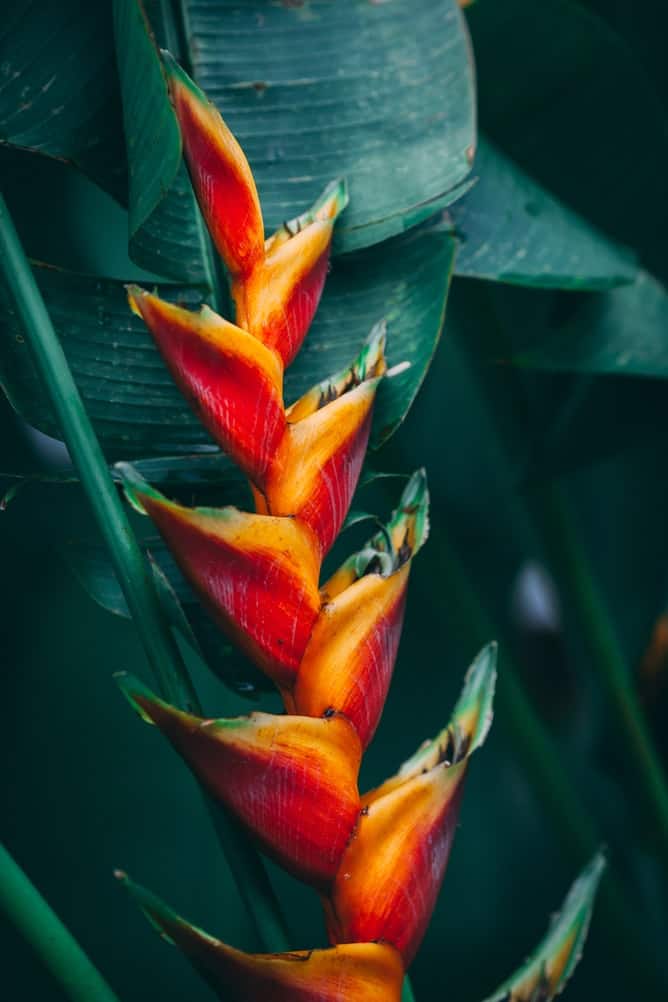
Tell me about Jamaican Food
Jamaican food is an admixture of African, Chinese, Spanish, British and Indian and the Amerindians – the tainos, the original people before Columbus and the others came. Basically whoever came to the land, had some culinary influence which is evident today.
Jamaicans love their seafood, chicken, beef, pork, lamb and mutton. It’s also not uncommon for various parts of an animal to be used to make dishes i.e turkey neck soup, chicken feet (known as steppers) soup. In terms of vegetables, cho cho, breadfruit, callaloo, dasheen, yam, sweet potatoes, pumpkin, squash, cocoyam, cassava, plantain, and green bananas are popular.
For spices, we eat cinnamon, mace, nutmeg, turmeric, pimento, black pepper, cumin. We use a lot of pre-made spice blends which contain an array of spices i.e all purpose, curry powder, chicken seasoning, fish seasoning.
What are your everyday Jamaican foods? What types of things are common for breakfasts, dinners, snacks?
For me I always have plantain, cassava, yam, cho cho and sweet potatoes in the house. I also like to have mango and pineapple to make smoothies.
Jamaica and most of the Caribbean are quite unique in the fact that we eat fish and root vegetables for breakfast. A good example of this is salt fish. You can pair it with callaloo, ackee or boiled green banana and that’s a good wholesome breakfast.
We also like porridge but it’s not made the way it’s done in the western hemisphere. You can make porridge with cornmeal, rice, green banana/plantain or just oatmeal. The method is different in the sense that it’s sweetened with condensed milk and contains vanilla, nutmeg and cinnamon. The texture is also silky smooth, super filling and a great way to start the day.
Dinner tends to be stewed meat or fried fish paired with rice or what’s known as ground provision aka hard food (any root vegetables). It’s very much carb-based and incredibly filling.
I would say patties and fritters and fried dumpling are very popular snacks and then you have your sweet treats like gizzada, grate cake (pink and white coconut flesh cake) and fruit like guineps, mango.

Is there anything eaten in Jamaica that’s not eaten anywhere else in the world? Anything surprising?
YES!! The national dish, which is Ackee and Saltfish. Ackee is a fruit. It looks like scrambled eggs but it’s quite bland and tastes nothing like eggs. That’s very unique to the island and only countries where Jamaicans have migrated to will have this dish. We also have a bread called hard dough bread, which I believe only comes from Jamaica
What’s your very favorite recipe from Jamaica? What is your least favorite food that is traditionally Jamaican?
Favourites: Banana fritters, saltfish fritters, green banana porridge, brown stew chicken, cornmeal porridge, jamaican steamed cabbage, bammy (flatbread made from cassava), pepper shrimp, pepper steak, beef patty and curry goat.
Least favourite: I’m not a huge fan of anything pickled and soups with animal parts so escovitch fish and soups like steppers (chicken feet) soup or manish water (soup with goat parts)
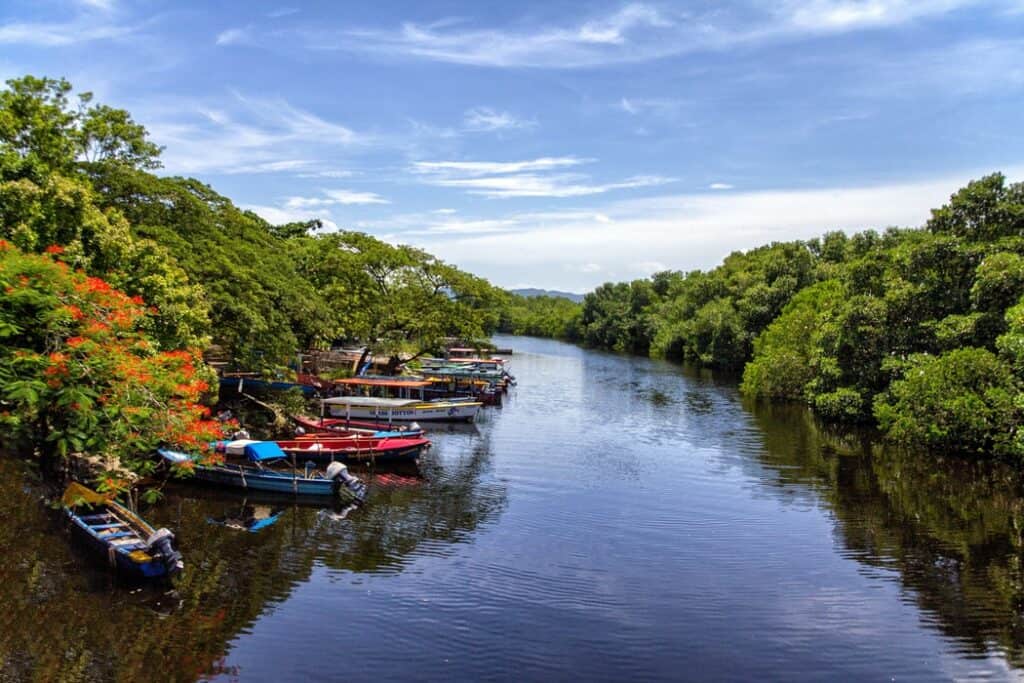
Are there any ingredients that you love that just aren’t the same unless you’re in Jamaica?
Yes! The most obvious one is pimento which is an absolute key ingredient to make anything jerk. It’s a unique cooking technique that cannot be replicated.
True jerk needs the pimento spice along with the pimento wood and leaves to make it 100% authentic. Even some places in the UK sell jerk chicken, pork etc.. It’s never ever the same as what it is in Jamaica. Close, but certainly not the same.
Tell me about your food blog! Why you started it, what it features, etc.
Sure thing! I have always been passionate about cooking from a young age and would often help my mother and grandmother as a young girl. What actually prompted me to start my blog was after having a series of conversations with some co-workers who struggled to make healthy, wholesome meals. I also qualified as a health coach at the time, so I put my culinary skills and academic skills to good use.
I wanted to teach people how to create wholesome meals from scratch. Around the time of my blog start up, I was also diagnosed with IBS which meant I had to reduce the amount of dairy that I incorporated into my diet so I centred my blog around being dairy free.
Once I started my blog I decided to narrow it down to being gluten free purely by request, a few people who followed my blog wanted gluten free alternatives so I decided to tap into dairy and gluten free cooking.
I also showcase a lot of healthy and modern adaptations to Caribbean cuisines too (not just Jamaican, all the islands) and one of my favourite and most popular recipes to date is my Jamaican Brown Stew Chicken.
Did you like this interview? If so, make sure to check out these other posts about Caribbean countries on The Foreign Fork. You’ll find some great recipes housed on each!



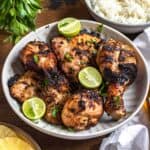
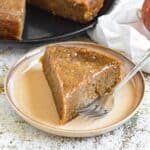
Tammie Houston says
My in-laws are visiting soon and since they’re from Jamaica I want to do what I can and find a good Caribbean restaurant to take them to if ever they crave the food once they get here if ever they start craving for food from their home. It’s great you listed out the common foods you can find there like stewed meat and fried fish. I’ll have to make sure to find a restaurant that offers the more popular dishes they have over there as I’m sure that’s what they’d prefer. https://dutchpotrestaurants.com/miami-gardens
The Foreign Fork says
That’s very thoughtful of you Tammie!! I’m glad that the article was helpful 🙂